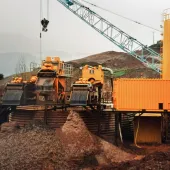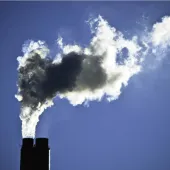Industry study launched ahead of Scottish Aggregates Tax
MPA Scotland has launched new research to examine the economic contribution of the country’s aggregates industry, as the sector prepares for the introduction of the Scottish Aggregates Tax in 2026.
The study, commissioned by the Mineral Products Association (MPA) Scotland and carried out by Biggar Economics, will assess the industry’s contribution to GDP, public finances, and employment. It will also explore the sector’s potential to support future growth in key areas of the Scottish economy.
The initiative comes ahead of the Scottish Government's introduction of a devolved Aggregates Tax, which will replace the UK-wide Aggregates Levy. While legislative work on the new tax has progressed, several issues remain unsettled — most notably, the rate at which the tax will be applied. MPA Scotland says the research will provide important benchmarking data to assess the tax's potential impacts.
The study is expected to complement ongoing Scottish Government research into the supply and suitability of recycled and secondary aggregates — a topic that generated considerable debate during the passage of the legislation.
Alan Doak, director of MPA Scotland, welcomed the new research as a way to bring clarity to a complex issue. “There was lots of discussion during the debates on the Bill on the roles played in the Scottish economy by recycled and virgin aggregates,” he said. “The research we have commissioned will help everyone approach these issues on the basis of fact rather than emotion.”
Doak acknowledged arguments from some within the recycling sector that increasing the rate of tax on primary aggregates could drive greater use of recycled alternatives. However, he noted that the economics of recycled aggregate use are often governed by proximity to source rather than tax incentives.
“Regardless of the level of tax imposed on primary aggregates, recycled aggregates will only be a cost-effective option on sites within a reasonable distance of the recycling facility. Haulage costs quickly outweigh any tax savings the further materials have to travel,” he said.
Doak also pointed to ongoing reluctance among clients and engineers to specify recycled materials as a more significant barrier to uptake.
MPA Scotland has also welcomed the Scottish Government’s commitment to establishing a new Scottish Minerals Forum, with the backing of the Deputy First Minister. The forum will provide a platform for stakeholders to monitor the rollout of the tax and review the research findings.
“We look forward to establishing the Scottish Minerals Forum, to monitor the implementation of the tax, consider this research programme and ensure that our industry is delivering for Scotland,” Doak added.
MPA Scotland represents the majority of Scotland’s aggregates producers and has been actively engaged in shaping the development of the new tax. The association is calling for evidence-based policy that supports both sustainability and continued investment in the country’s construction materials supply chain.







